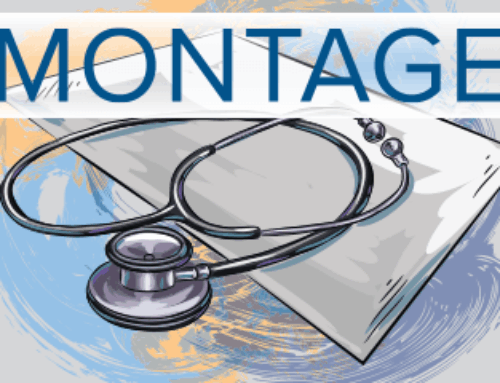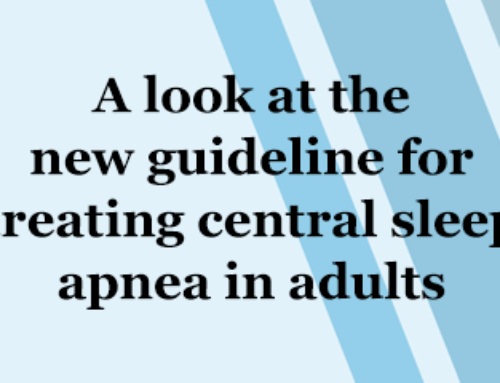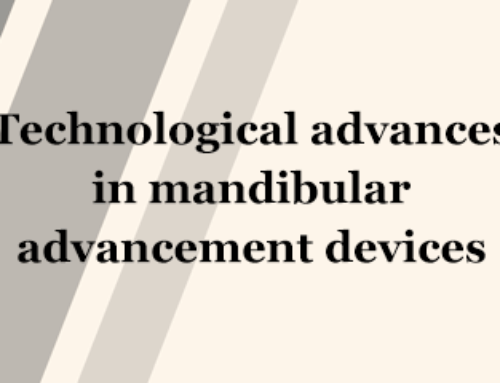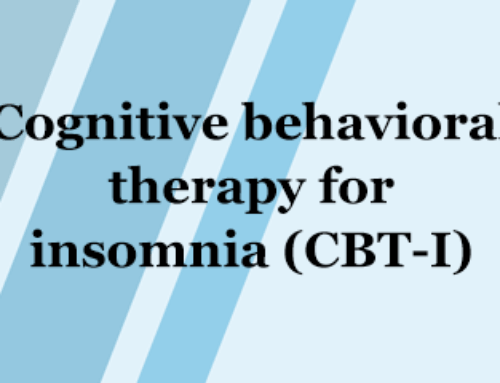By Aesha M. Jobanputra, MD
Medical students often grapple with demanding schedules, leading to potential sleep deprivation and/or restriction and its associated risks. The medicine clerkship tends to be one of the longer clinical rotations, with students required to balance clinical duties, call schedules and educational activities. Despite a schedule that often reflects residents’ schedules, the guidance on duty hours for medical students is lacking. In addition, studies investigating sleep habits and its effects on medical students are sparse.
Medical students often have irregular sleep patterns due to clinical rotations, learning about the disease processes that affect the management of their patients, studying for exams and personal responsibilities. These responsibilities can often lead to circadian disturbances in addition to sleep restriction and deprivation. Studies have demonstrated that acute sleep deprivation leads to impairment in objective cognitive and vigilance testing.1 Meanwhile, chronic sleep restriction also leads to impairments in both cognitive and vigilance testing; however, it does not cause a proportional rise in subjective sleepiness.1 In addition, the subjective sleepiness after chronic sleep restriction recovers within three days, though the objective performance in cognitive and vigilance testing does not.1,2 In addition, data demonstrates that there is an increased risk of falling asleep while driving for residents as the number of extended shifts per month increases.3 Furthermore, the number of percutaneous injuries and serious medical errors also rises in residents with an increasing number of extended shifts.4,5 However, no such data have been collected for medical students, even though they often work extended shifts and have the additional responsibilities of studying for exams and preparing presentations for their rotations.
A comprehensive systematic review and meta-analysis conducted by Seoane et al., comprising approximately 20 global studies, sheds light on the significant issue of sleep disruption among medical students and its profound impact on academic performance.6 Their findings reveal that a substantial proportion of students, about 39.8% and 29.1%, reported poor and insufficient sleep, respectively.6 Moreover, more than one-third of the students struggled with excessive daytime sleepiness, further highlighting the magnitude of the problem.6 Importantly, the study also established a significant correlation between sleep quality, daytime sleepiness scores and academic performance.6 These findings underscore the critical need for addressing sleep health and implementing interventions to support the well-being and academic success of medical students.
We are currently engaged in a comprehensive study on the sleep habits of medical students across two different institutions. Our study aims to delve into the sleep patterns and the educational gaps concerning sleep among medical students during their medicine clerkship. We have been administering a sleep-related questionnaire as part of their end-of-clerkship survey, conducted upon completion of the internal medicine rotation. Out of the 125 students who have received the questionnaire thus far, 113 have responded, accounting for a response rate of 90.4%. Notably, approximately 70.8% of the students reported sleeping for six hours or less, while 79.6% noted that sleep deprivation has indeed impacted their clinical responsibilities. Moreover, more than two-thirds of the students admitted to experiencing fatigue or sleepiness while driving during the rotation. However, the most striking revelation thus far is that despite ample evidence showcasing the adverse effects of sleep restriction and deprivation, a staggering 89.4% of students have never received any education on sleep deprivation, its consequences, or strategies for mitigating its impact. This data underscores the critical need for increased awareness and education on sleep health within the medical student community, highlighting an area that warrants urgent attention and intervention.
Cultivating healthy sleep habits early in one’s career is crucial, yet this vital topic hasn’t been consistently integrated into medical school curricula. By providing education on fostering healthy sleep practices, promoting open dialogue about the challenges faced during medical education and clinical rotations, and exploring strategies to manage sleep and fatigue among medical students, we can enhance students’ well-being and performance, while improving patient safety and quality of care.
Aesha Jobanputra, MD, is an assistant professor of medicine at Rutgers Robert Wood Johnson Medical School.
This article appeared in volume nine, issue two of Montage magazine.
References
- Van Dongen, H. P.; Maislin, G.; Mullington, J. M.; Dinges, D. F. The cumulative cost of additional wakefulness: dose-response effects on neurobehavioral functions and sleep physiology from chronic sleep restriction and total sleep deprivation. Sleep 2003, 26, 117-126.
- Belenky, G.; Wesensten, N. J.; Thorne, D. R.; Thomas, M. L.; Sing, H. C.; Redmond, D. P.; Russo, M. B.; Balkin, T. J. Patterns of performance degradation and restoration during sleep restriction and subsequent recovery: a sleep dose-response study. J Sleep Res 2003, 12, 1-12.
- Barger, L. K.; Cade, B. E.; Ayas, N. T.; Cronin, J. W.; Rosner, B.; Speizer, F. E.; Czeisler, C. A.; Harvard Work Hours, H.; Safety, G. Extended work shifts and the risk of motor vehicle crashes among interns. N Engl J Med 2005, 352, 125-134.
- Ayas, N. T.; Barger, L. K.; Cade, B. E.; Hashimoto, D. M.; Rosner, B.; Cronin, J. W.; Speizer, F. E.; Czeisler, C. A. Extended work duration and the risk of self-reported percutaneous injuries in interns. JAMA 2006, 296, 1055-1062.
- Landrigan, C. P.; Rothschild, J. M.; Cronin, J. W.; Kaushal, R.; Burdick, E.; Katz, J. T.; Lilly, C. M.; Stone, P. H.; Lockley, S. W.; Bates, D. W.; Czeisler, C. A. Effect of reducing interns’ work hours on serious medical errors in intensive care units. N Engl J Med 2004, 351, 1838-1848.
- Seoane, H. A.; Moschetto, L.; Orliacq, F.; Orliacq, J.; Serrano, E.; Cazenave, M. I.; Vigo, D. E.; Perez-Lloret, S. Sleep disruption in medicine students and its relationship with impaired academic performance: A systematic review and meta-analysis. Sleep Med Rev 2020, 53, 101333.





